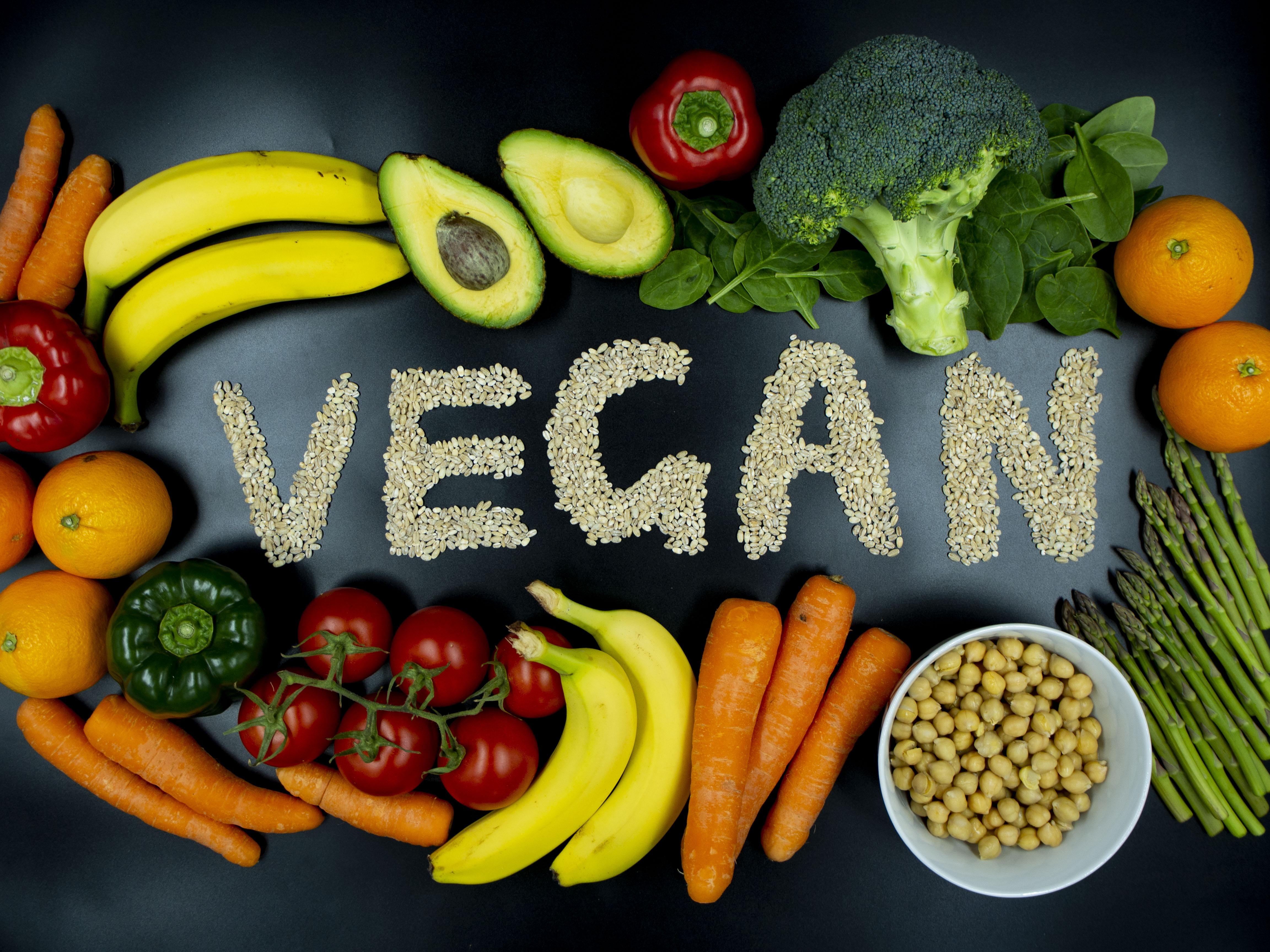In a world where dietary preferences are as diverse as the population itself, the rise of vegetarian and vegan diets has been nothing short of revolutionary. Gone are the days when plant-based eating was deemed as a mere trend or a passing fad. It has evolved into a lifestyle that has captured the hearts, minds, and taste buds of countless individuals around the globe. But amidst this growing movement lies a crucial question: are vegetarian and vegan diets truly suitable for everyone? As we delve into the intriguing realm of personalized nutritional considerations, we embark on a journey to uncover the delicate balance between dietary choices and individual needs. Join us as we explore the intricate tapestry that makes each vegetarian and vegan diet as unique as the individuals who embrace them. Brace yourselves, for we are about to unravel the captivating secrets of plant-based nourishment, tailored to fit the diverse world of nutrition.
Vegetarian and Vegan Diets: Personalized Nutritional Considerations
When it comes to vegetarian and vegan diets, personalization is key. Each individual has unique nutritional needs that must be considered in order to maintain a healthy and balanced plant-based lifestyle. Whether you are a long-time vegetarian or just starting out on your vegan journey, here are some important considerations to keep in mind.
Firstly, it’s crucial to ensure that you are getting all the necessary nutrients from your diet. While plant-based diets can provide ample amounts of vitamins, minerals, and antioxidants, certain nutrients may be harder to obtain solely from plants. Make sure to include fortified foods or take supplements for nutrients like vitamin B12, iron, and omega-3 fatty acids.
In addition, it’s essential to pay attention to your protein intake. Many vegetarian and vegan sources of protein such as beans, lentils, tofu, and tempeh are available, but you may need to incorporate a variety of these foods throughout the day to meet your daily protein requirements. Pay attention to the quality of protein as well, by combining different sources or incorporating protein-rich grains like quinoa.
Another important consideration is calcium. While dairy products are not part of a vegan diet, there are many plant-based sources of calcium, such as fortified plant milks, tofu, leafy green vegetables, and sesame seeds. Ensuring an adequate calcium intake is vital for strong bones and overall health.
| Considerations | Summary |
|---|---|
| Include fortified foods or supplements | Ensure sufficient intake of vitamin B12, iron, and omega-3 fatty acids. |
| Variety of protein sources | Incorporate a mix of beans, lentils, tofu, and tempeh to meet protein needs. |
| Calcium-rich options | Choose fortified plant milks, tofu, leafy greens, and seeds for adequate calcium intake. |

– Understanding the Key Nutrient Requirements for Plant-Based Diets
When it comes to vegetarian and vegan diets, understanding the key nutrient requirements is crucial for maintaining a healthy and balanced lifestyle. While these diets offer numerous health benefits, it’s important to personalize your nutritional considerations to ensure you’re getting all the essential nutrients your body needs.
One of the key nutrients to focus on is protein. Many people associate protein with animal-based products, but there are plenty of plant-based sources that can provide all the essential amino acids your body needs. Incorporate foods like legumes, tofu, tempeh, seitan, and quinoa into your meals to meet your protein requirements. Additionally, consider using plant-based protein powders as a convenient and effective way to supplement your protein intake.
- Legumes: Lentils, chickpeas, and beans
- Tofu: A versatile source of protein that can be used in stir-fries, salads, and more
- Tempeh: Fermented soybean protein with a nutty flavor
- Seitan: High-protein wheat gluten commonly used as a meat substitute
- Quinoa: A complete protein grain that can be used as a base for salads, stir-fries, and side dishes
In addition to protein, it’s important to pay attention to other vital nutrients like iron, calcium, omega-3 fatty acids, and vitamin B12. Iron is essential for oxygen transport in the body and can be found in foods such as spinach, lentils, and fortified cereals. Calcium, crucial for bone health, can be obtained from plant-based sources like tofu, kale, and almonds. For omega-3 fatty acids, include foods like flaxseeds, chia seeds, and walnuts in your diet. Lastly, vitamin B12, predominantly found in animal products, can be supplemented through fortified foods or supplements.
| Nutrient | Plant-Based Sources |
| Iron | Spinach, lentils, fortified cereals |
| Calcium | Tofu, kale, almonds |
| Omega-3 Fatty Acids | Flaxseeds, chia seeds, walnuts |
| Vitamin B12 | Fortified foods, supplements |
By understanding and incorporating these key nutrient requirements into your plant-based diet, you can ensure that you’re meeting your body’s nutritional needs while enjoying the benefits of a vegetarian or vegan lifestyle. Don’t forget to consult a healthcare professional or registered dietitian for personalized advice and guidance.
- Tailoring Your Vegetarian or Vegan Diet to Ensure Proper Protein Intake
Tailoring Your Vegetarian or Vegan Diet to Ensure Proper Protein Intake
When following a vegetarian or vegan diet, it’s crucial to personalize your nutritional choices to meet your body’s protein needs. Contrary to popular belief, it is entirely possible to achieve optimal protein intake without consuming meat or animal products. Here are some helpful tips to ensure you’re getting the right amount of protein:
- Choose a Variety of Protein Sources: Incorporating a wide range of plant-based proteins into your diet is key. From legumes like lentils and chickpeas to nuts and seeds such as almonds and chia, diversifying your protein sources ensures adequate intake of essential amino acids.
- Prioritize Whole Grains: Whole grains like quinoa, brown rice, and oats not only provide carbohydrates for energy, but they also contain decent amounts of protein. Make them a staple in your meals to boost your protein intake.
- Consider Soy and Its Derivatives: Soybeans and soy products like tofu and tempeh are incredibly versatile protein options. These plant-based options are complete proteins, meaning they contain all nine essential amino acids our bodies need.
Table 1:
| Plant-Based Sources of Protein | Protein Content per 100g |
|---|---|
| Lentils | 9g |
| Almonds | 21g |
| Chia Seeds | 16g |
| Quinoa | 4g |
| Tempeh | 19g |
By incorporating a variety of plant-based protein sources, prioritizing whole grains, and considering soy and its derivatives, you can tailor your vegetarian or vegan diet to meet your protein needs effectively. Remember to consult with a registered dietitian or nutritionist who can provide personalized guidance based on your specific dietary requirements.

– Optimizing Micronutrient Absorption in Vegetarian and Vegan Diets
In order to ensure optimal nutrient absorption on a vegetarian or vegan diet, it is important to pay close attention to the intake of micronutrients. While these diets can provide all the necessary macro and micronutrients, there are certain strategies that can be employed to enhance their absorption and utilization by the body.
Firstly, incorporating a variety of plant-based foods into your diet is crucial. Different fruits, vegetables, whole grains, legumes, seeds, and nuts contain a wide range of micronutrients, each with their own unique profiles. By consuming a diverse array of plant foods, you can maximize your chances of obtaining all the essential micronutrients needed for your body’s optimal functioning.
Another important consideration is the combination of foods to enhance nutrient absorption. Some micronutrients, such as iron and vitamin C, work synergistically. Including vitamin C-rich foods like citrus fruits, strawberries, and bell peppers in the same meal as iron-rich foods like lentils, spinach, and tofu can greatly increase the bioavailability of iron. Similarly, pairing foods high in vitamin D, like mushrooms and fortified plant-based milks, with calcium-rich foods like kale and broccoli can aid in the absorption of calcium.
Table: Example of Iron-Rich Foods
| Food | Iron Content (mg) |
|————–|——————-|
| Spinach | 2 |
| Lentils | 3 |
| Tofu | 5 |
| Quinoa | 4 |
By considering these personalized nutritional strategies, individuals following vegetarian or vegan diets can optimize their absorption of essential micronutrients. It is essential to listen to your body and make adjustments as needed, ensuring a well-rounded and nutritious diet. Remember, everyone’s nutritional requirements may vary, so it can be helpful to consult with a registered dietitian to tailor your diet to your specific needs.
– Balancing Macronutrients for Optimal Health on a Plant-Based Diet
When following a vegetarian or vegan diet, it is important to ensure that you are getting all the necessary nutrients to maintain optimal health. One key aspect of a plant-based diet is the balance of macronutrients, including carbohydrates, proteins, and fats. By understanding how to properly balance these macronutrients, you can ensure that your body receives the right amount of energy and nutrients it needs.
Carbohydrates are an essential part of any diet and should make up the majority of your calorie intake. However, not all carbohydrates are created equal. Focus on incorporating complex carbohydrates such as whole grains, legumes, and vegetables into your meals. These provide a steady release of energy and are packed with essential vitamins and minerals. In contrast, simple carbohydrates found in processed foods and sugary drinks should be limited as they can cause blood sugar spikes and contribute to weight gain.
Protein is another crucial macronutrient, especially for those following a plant-based diet. It is important to include a variety of protein sources to ensure you are getting all the necessary amino acids your body needs. Incorporate plant-based protein sources such as legumes, tofu, tempeh, seitan, nuts, and seeds into your meals. By combining different sources, you can achieve a complete amino acid profile. Remember to include a source of protein in each meal to promote muscle health and repair.
Fats are often misunderstood but are an essential part of a balanced diet. They provide essential fatty acids and help absorb fat-soluble vitamins. Opt for healthy fats such as avocados, nuts, seeds, and olive oil. Limit the consumption of saturated fats found in animal products and processed foods. Remember, moderation is the key.
By maintaining a balanced intake of macronutrients, you can optimize your health on a plant-based diet. Remember to listen to your body and make adjustments as needed. It is also important to consult with a registered dietitian or nutritionist to ensure you are meeting your unique nutritional needs.
In Retrospect
In a world filled with diverse dietary preferences, the advent of vegetarian and vegan diets has emerged as a powerful force for change. By eschewing animal products, adherents of these lifestyles embrace a profound connection between their nutritional choices and a harmonious coexistence with the planet. As we delve into the realm of personalized nutritional considerations, we uncover a treasure trove of opportunities to optimize and tailor these diets to suit varying needs.
While vegetarianism and veganism have become mass movements, it is crucial to remember that every individual is truly unique. From athletes striving for peak performance to expectant mothers nurturing new life, the personalized nutritional considerations within these dietary choices are of paramount importance. The blank canvas of a vegetarian or vegan lifestyle allows for a symphony of colors, textures, and flavors, tailored to meet the specific needs of each individual.
For those seeking to embark on a fitness journey, crafting a personalized vegetarian or vegan diet can be akin to sculpting a masterpiece. By ensuring adequate protein intake from plant-based sources, such as legumes, nuts, and tofu, the muscle-building blocks can be delicately placed, allowing the body to transcend its previous limits. With a pinch of creativity and strategic planning, one can unlock the full potential of these diets, tailor-made for unrivaled athletic prowess.
Expectant mothers, amidst the miracles of life, find solace in the knowledge that vegetarian and vegan diets can be beautifully adapted to nurture both themselves and their growing babies. By consciously incorporating nutrient-rich plant-based sources of iron, calcium, and vitamins, these diets offer a robust foundation for a healthy pregnancy. With a touch of culinary inventiveness, mothers-to-be can embrace a wealth of vibrant flavors in their plates, a testament to the nutritional artistry woven into their dietary choices.
Even as we celebrate the boundless potential of vegetarian and vegan diets, it is vital to tread a path of prudent nutritional planning. Seeking the guidance of a qualified dietitian or nutritionist can ensure that individual dietary considerations are addressed with expertise and precision. The uniqueness of our bodies warrants a personalized approach, where the brushstrokes of nutrition are carefully honed for optimal health and well-being.
As we delve into this captivating realm of personalized nutritional considerations within vegetarian and vegan diets, let us remember that the dimensions of our dietary choices are vast, embracing both science and artistry. With a palette of plant-based ingredients, the possibilities are infinite, allowing our bodies to thrive while appeasing the ever-evolving taste buds within our souls. Embrace the tapestry of personalized nutrition, and let your dietary journey be a masterpiece, painted with compassion, creativity, and love.


